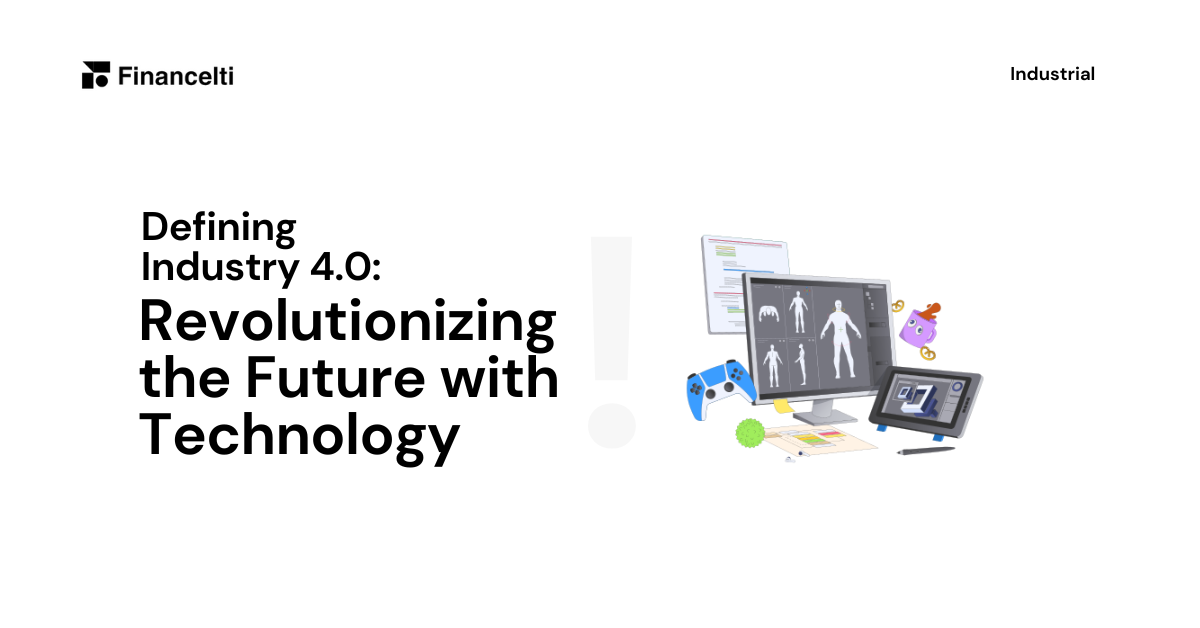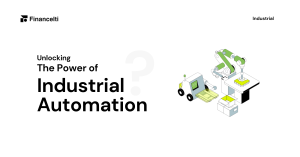Defining Industry 4.0: Revolutionizing the Future with Technology
Introduction
In the ever-evolving landscape of technology and industry, Industry 4.0 has emerged as a defining paradigm shift. This article delves into the definition, meaning, examples, certification, standards, and the impact of Industry 4.0 on cities, jobs, training, and more.
Unlocking Industry 4.0: Definition, Examples, and Impact
Table of Contents
Industry 4.0 Definition
Industry 4.0, often referred to as the Fourth Industrial Revolution, represents a fundamental change in the way we manufacture and operate industries. It encompasses the integration of digital technologies, the Internet of Things (IoT), artificial intelligence (AI), and big data into various industrial processes.
Industry 4.0 Meaning
The meaning of Industry 4.0 lies in its ability to create smart, connected, and efficient systems that can communicate and make decisions independently. It’s about optimizing production, reducing downtime, and improving overall productivity.
Industry 4.0 Examples
Smart Factories
One of the prominent examples of Industry 4.0 is the transformation of factories into smart factories. These facilities use sensors and data analytics to enhance efficiency, predict maintenance needs, and reduce waste.
Autonomous Vehicles
The automotive industry embraces Industry 4.0 with autonomous vehicles that rely on AI and IoT sensors for navigation and decision-making.
Industry 4.0 Certification
Certification in Industry 4.0 is essential for professionals looking to thrive in this new era. Various institutions offer courses and certifications in fields like data science, IoT, and automation.
Industry 4.0 Standards
Standardization is critical to ensure the compatibility and security of Industry 4.0 technologies. Organizations like ISO and IEC play a pivotal role in establishing these standards.
Industry 4.0 Jobs
The rise of Industry 4.0 has led to the creation of numerous job opportunities. Roles such as data scientists, AI engineers, and cybersecurity experts are in high demand.
Industry 4.0 Training
To equip the workforce with the required skills, Industry 4.0 training programs are becoming increasingly popular. These programs cover topics like machine learning, robotics, and data analysis.
Conclusion
In conclusion, Industry 4.0 is not just a buzzword; it’s a transformative force that is reshaping industries across the globe. Understanding its definition, meaning, examples, certification, and standards is crucial for anyone looking to be a part of this technological revolution. Visit Vellocex/finance For More Financial News.
FAQ
What are the key technologies driving Industry 4.0?
The key technologies driving Industry 4.0 include the Internet of Things (IoT), artificial intelligence (AI), big data analytics, and automation.
How can I get certified in Industry 4.0?
You can get certified in Industry 4.0 by enrolling in courses offered by reputable institutions and organizations specializing in Industry 4.0 technologies and applications.
What impact does Industry 4.0 have on job opportunities?
Industry 4.0 creates new job opportunities in fields like data science, AI, robotics, and cybersecurity, making it a promising career path for many.
Are there any downsides to Industry 4.0?
While Industry 4.0 offers numerous benefits, it also raises concerns about data privacy, cybersecurity, and potential job displacement, which need to be carefully addressed.
With this comprehensive guide, you now have a better understanding of Industry 4.0 and its profound impact on the industrial landscape and beyond. Embrace the Fourth Industrial Revolution and stay ahead in this era of technological advancement. Read more on industrial News.









para que sirve cephalexin 250 mg
para que sirve cephalexin 250 mg
ciprofloxacin ophthalmic solution usp
ciprofloxacin ophthalmic solution usp
bactrim in pregnancy
bactrim in pregnancy
is bactrim an antibiotic
is bactrim an antibiotic
amoxicillin suspension
amoxicillin suspension
destiny 2 contraverse hold
destiny 2 contraverse hold
effexor and weight gain
effexor and weight gain
augmentin price
augmentin price
diclofenac over the counter
diclofenac over the counter
ezetimibe audit pct
ezetimibe audit pct
flexeril erowid
flexeril erowid
cozaar medicine
cozaar medicine
depakote 500 mg side effects
depakote 500 mg side effects
ddavp spray nasal posologia
ddavp spray nasal posologia
what is the difference between citalopram and escitaloprám
what is the difference between citalopram and escitaloprám
flomax and nose bleeds
flomax and nose bleeds
diltiazem drug class
diltiazem drug class
aspirin molecular weight
aspirin molecular weight
aripiprazole contraindications
aripiprazole contraindications
what are the side effects of allopurinol
what are the side effects of allopurinol
how long does amitriptyline make you sleepy
how long does amitriptyline make you sleepy
ashwagandha adrenal fatigue
ashwagandha adrenal fatigue
what is the generic name for celebrex
what is the generic name for celebrex
baclofen bluelight
baclofen bluelight
what are the side effects of celexa
what are the side effects of celexa
augmentin uses
augmentin uses
celecoxib side effects
celecoxib side effects
how long does remeron stay in your system
how long does remeron stay in your system
does robaxin work
does robaxin work
semaglutide empower pharmacy
semaglutide empower pharmacy
propranolol lactose-free
propranolol lactose-free
repaglinide pharmacodynamics
repaglinide pharmacodynamics
how to take protonix
how to take protonix
abilify and pregnancy
abilify and pregnancy
acarbose dosis
acarbose dosis